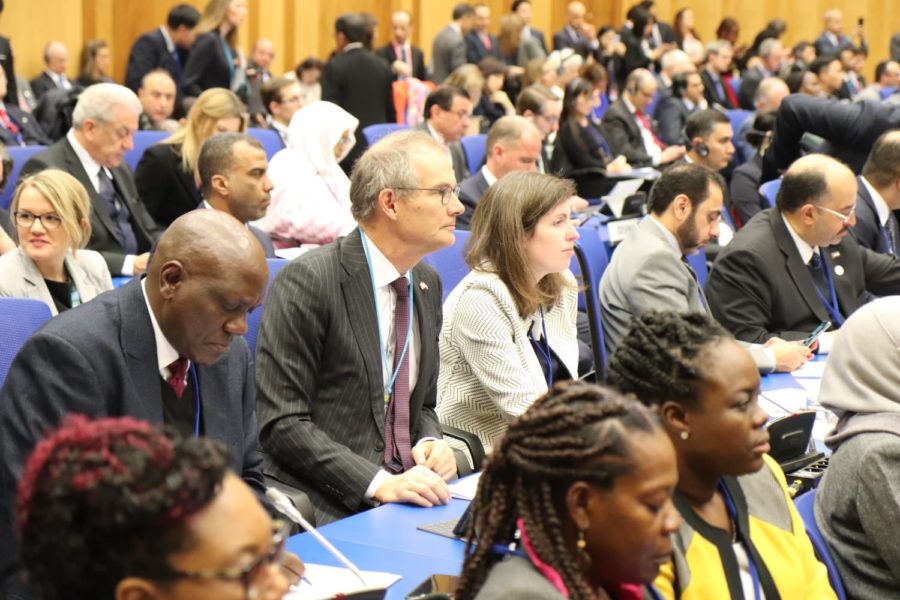One of Vienna’s key international organisations is the United Nations Office on Drugs and Crime, the UNODC. But how exactly do countries work with UNODC to combat the illegal use of drugs?
Every March, the UK and other countries send experts to the UNODC in Vienna for the Commission on Narcotic Drugs, known as the CND. The CND adopts strategies to address the world drug problem and takes decisions on international drug control. This year’s CND was a milestone: Ministers agreed the framework for the next decade of international drugs policy and reviewed the efforts of the last one. They set out their decisions in a “Ministerial Declaration”.
Evo Morales, President of Bolivia, addresses #CND2019 at @UNODC in Vienna. Elsewhere in conference, drugs education posters @CND_tweets pic.twitter.com/08iBZFvXk6
— Leigh Turner (@LeighTurnerFCO) March 14, 2019
The Ministerial Declaration recognised that the world faces unprecedented challenges on drugs. The range of drugs and their markets are changing rapidly. The amounts produced, the diversification of substances, including the proliferation of New Psychoactive Substances (NPS, see box below) and the increase in drug-related deaths – with over 72,000 people dying of overdoses in the United States in 2018 – are just some of the challenges.
The Ministerial Declaration called on the international community to renew their efforts to address the world drug problem, by adopting a balanced and evidence-based response, with due regard to health and human rights.
The United Kingdom Drug Strategy has a chapter dedicated to global action. This states that the UK will continue to play a leading role in tackling health harms; spearhead new initiatives on NPS; share best practice; and promote an evidence-based approach to preventing drug harms.
UNODC uses the term “new psychoactive substances (NPS)” which are defined as “substances of abuse, either in a pure form or a preparation, that are not controlled by the 1961 Single Convention on Narcotic Drugs or the 1971 Convention on Psychotropic Substances, but which may pose a public health threat”. The term “new” does not necessarily refer to new inventions — several NPS were first synthesized 40 years ago — but to substances that have recently become available on the market.
The UK has been leading the response to NPS, and set up the International Action Group on NPS, which gathers together over 30 countries and international organisations to share insights, collaborate on approaches and tackle challenges. I chaired a meeting of the Group in the margins of the CND.
Another challenge is the link between drugs and violence. Again, the UK hosted a side event at the CND, where the Home Office highlighted the role of drugs as a driver for serious violence, explained its impact on vulnerable populations and shared effective responses based on a ‘public health’ multi-agency approach.
The CND in Vienna, hosted by the UNODC, is a key opportunity for the global community collectively to address the world drug problem. The UK looks forward to continuing to work with UNODC and the the international community to find effective responses.

